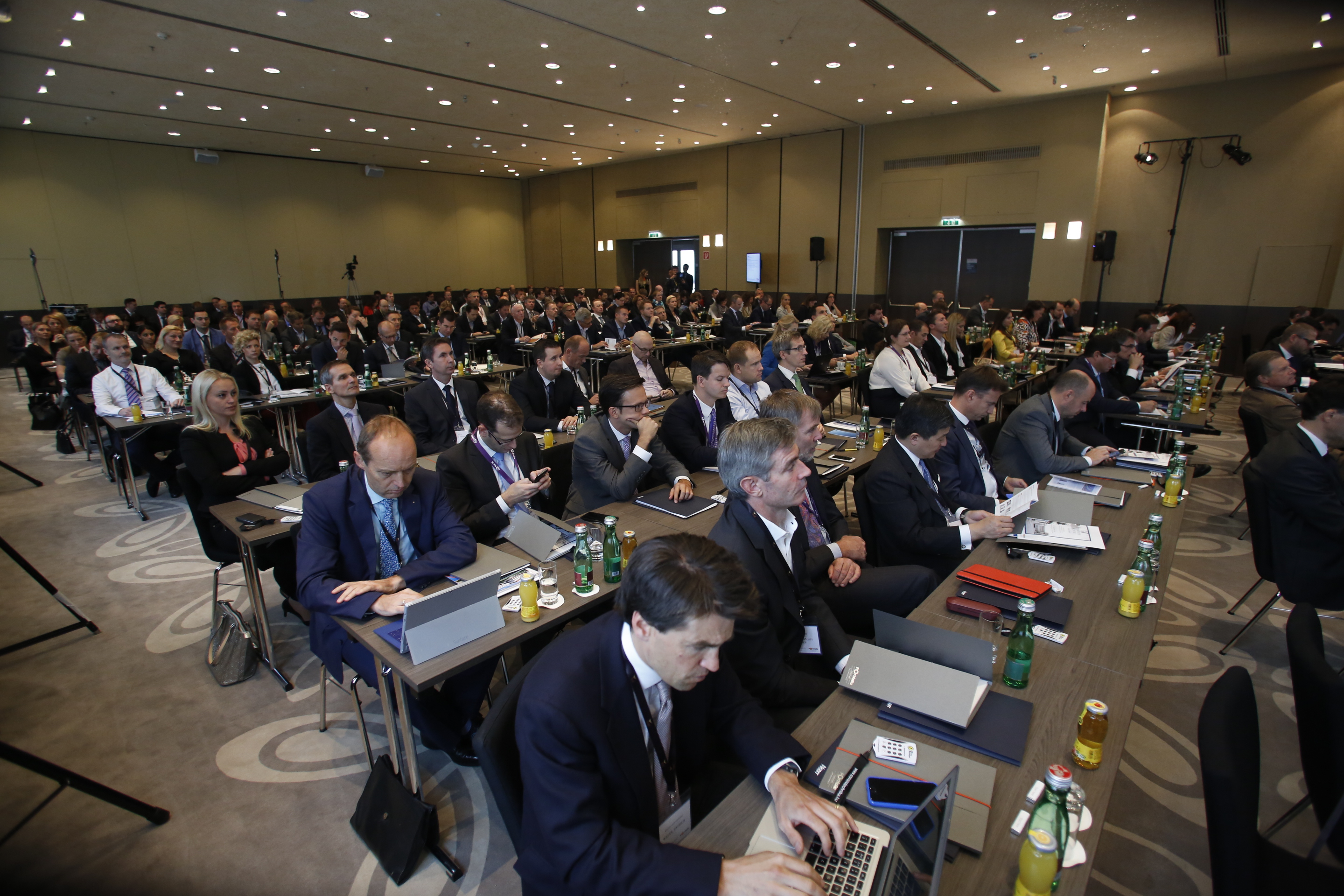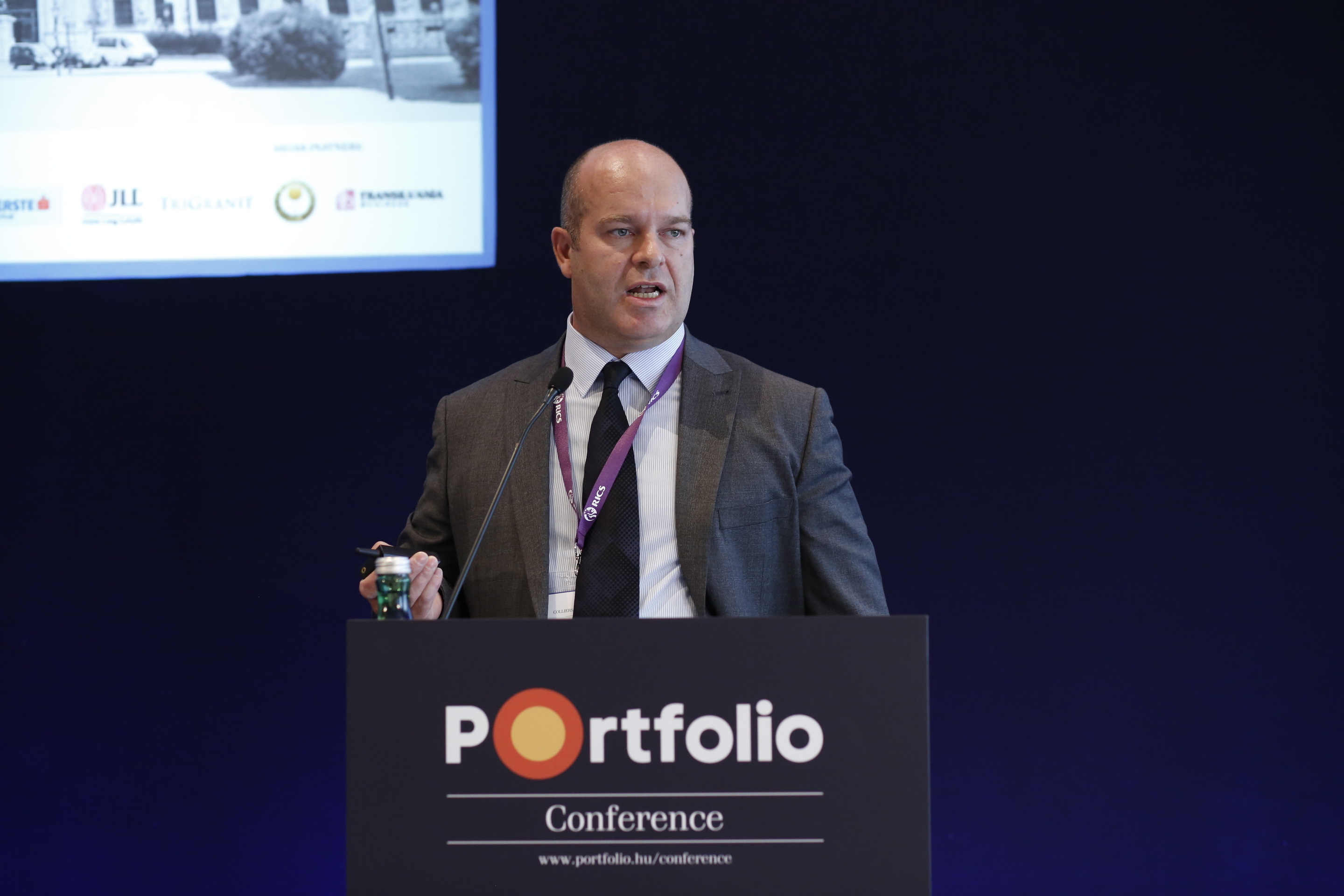
Brexit has proven that nothing is certain, but at this point it seems that the divorce of the UK and EU won’t have much of an impact on Central and Eastern European property markets. Over 300 visitors and 70 speakers came together in Vienna to discuss the most pressing issues concerning the CEE property industry. We report from CEE Property Forum 2016, co-organised by Portfolio Property Forum and RICS.
The unknown implications of Brexit
Fear over the potential consequences of Brexit have dominated property news cycles over the summer, but in spite of all the uncertainties markets seems to be rather optimistic at this stage. Many think that not much will change as a result of the referendum, said Zsolt Darvas, Senior Fellow at Bruegel Institute, while talking about the macroeconomic implications of Brexit.
Negotiating the terms of the divorce will take a lot of time, but in the end the UK can have a similar relationship with the EU that Norway, Liechtenstein, Iceland or Switzerland has. These countries enjoy almost all benefits of the single market without being actual member states. Unfortunately the three key demands of Brexiters (reduced immigration, eliminated EU budget contribution, control taken back) are inconsistent with EAA and Swiss-type deals, so it will be really difficult to satisfy those who voted leave while at the same time reaching an economically and financially favourable agreement for the UK.

There is a good chance that a number of companies will decide to move their operations from London to other cities of Europe, but members of the senior economists’ debate at CEE Property Forum 2016 believe that this will have a limited impact on European property markets. The number of people that will have to be moved in a hard Brexit scenario is relatively small, said Peter Attard Montalto, Executive Director and Senior Emerging Markets Economist and Strategist at Nomura, who think that it will be enough to move HQ addresses for passporting and tax purposes.

According to a poll conducted at CEE Property Forum 2016, 69% of respondents think that Western European property markets will benefit most from Brexit and only 11% think that CEE will emerge as one of the winners of the divorce. Members of the European real estate executive roundtable at the conference agreed that Brexit probably won’t drive occupier markets in CEE either, but it might accelerate current trends. 69% of participants think that the office market can see the biggest growth.

H1 2016 property investment volumes were down 27% y-o-y in Europe because of the weak performance of the two biggest markets, the UK and Germany. According to Damian Harrington MRICS, Head of EMEA Research at Colliers International, investors are feeling that the end of the current UK property cycle is near. On a more positive note, most CEE and Nordic countries have managed to grow over the first half of the year and the future looks promising for these markets. 65% of conference participants think that there have not been any noticeable impacts of Brexit on CEE markets to date.

Dr. Marcus Cieleback, Head of Research at Patrizia thinks that European investors are unsure about the regulatory environment that’s why they postpone some of their investment decisions, adding that investors coming from overseas view Brexit differently and it effects their current decisions more moderately. Some bigger transactions were put on hold as market players waited for the results of the referendum, but 2 out of 3 have gone through since, added Dirk Lentfer, Head of REIG at Noerr LLP.

The road to success
Dr. Louise Brooke-Smith FRICS, Immediate Past Global President (2014-2015) of RICS moderated an interdisciplinary discussion focusing on the future of CEE as a business destination. One of the speakers, Tamás Polster MRICS, Co-head of Consulting EMEA at Cushman & Wakefield thinks that companies are looking for talent and only countries that have been able to increase the quality and the sustainability of their education can be successful as business destinations. Although Budapest and Prague are the two cities that attract the most international talent, Poland and Romania are the ones that have done well with opening their regional centres for foreign companies.

The most promising economies
Members of the senior economists’ debate didn’t agree on which CEE country has the most potential. Tatha Ghose, Senior EM Economist and Director at Commerzbank AG, believes that based on growth figures Poland and Romania are the two countries in the region to watch out for. Peter Attard Montalto worries about a difference in the quality of growth between Poland and Romania, remains pessimistic about Hungary’s growth potential and thinks that on the longer term Serbia looks rather interesting, although structural reforms are needed there.



